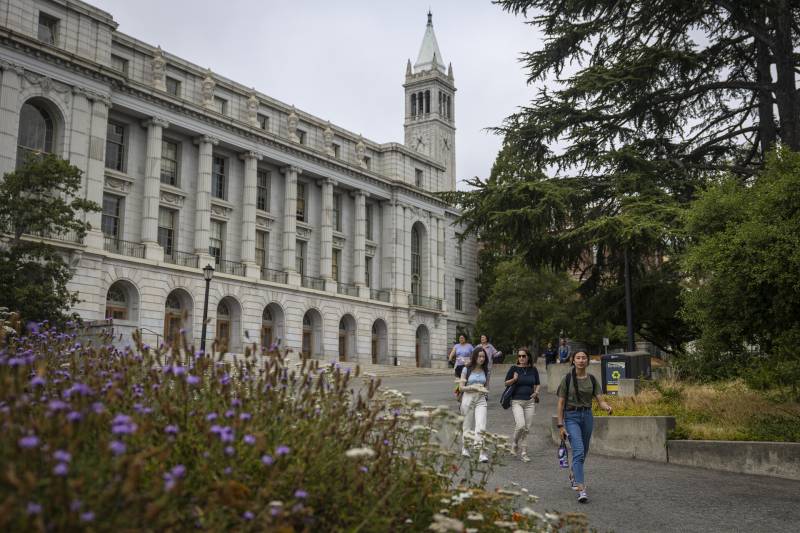The University of California is joining a national initiative to offer free online courses to students at lower-income high schools across the country beginning next year.
The university system is joining the National Education Equity Lab and beginning in the winter term of 2024 will offer two for-credit classes to students enrolled in Title I schools, a federal designation for schools with high numbers of lower-income students, UC’s board of regents learned Wednesday (PDF).
UC is hopeful that the program will allow students — who might not otherwise have access to college courses — the opportunity to take UC classes and get a taste of college.
The classes are free to students, but the participating high schools will need to pay a fee of $250 per student to the equity lab to cover administrative and support costs.
